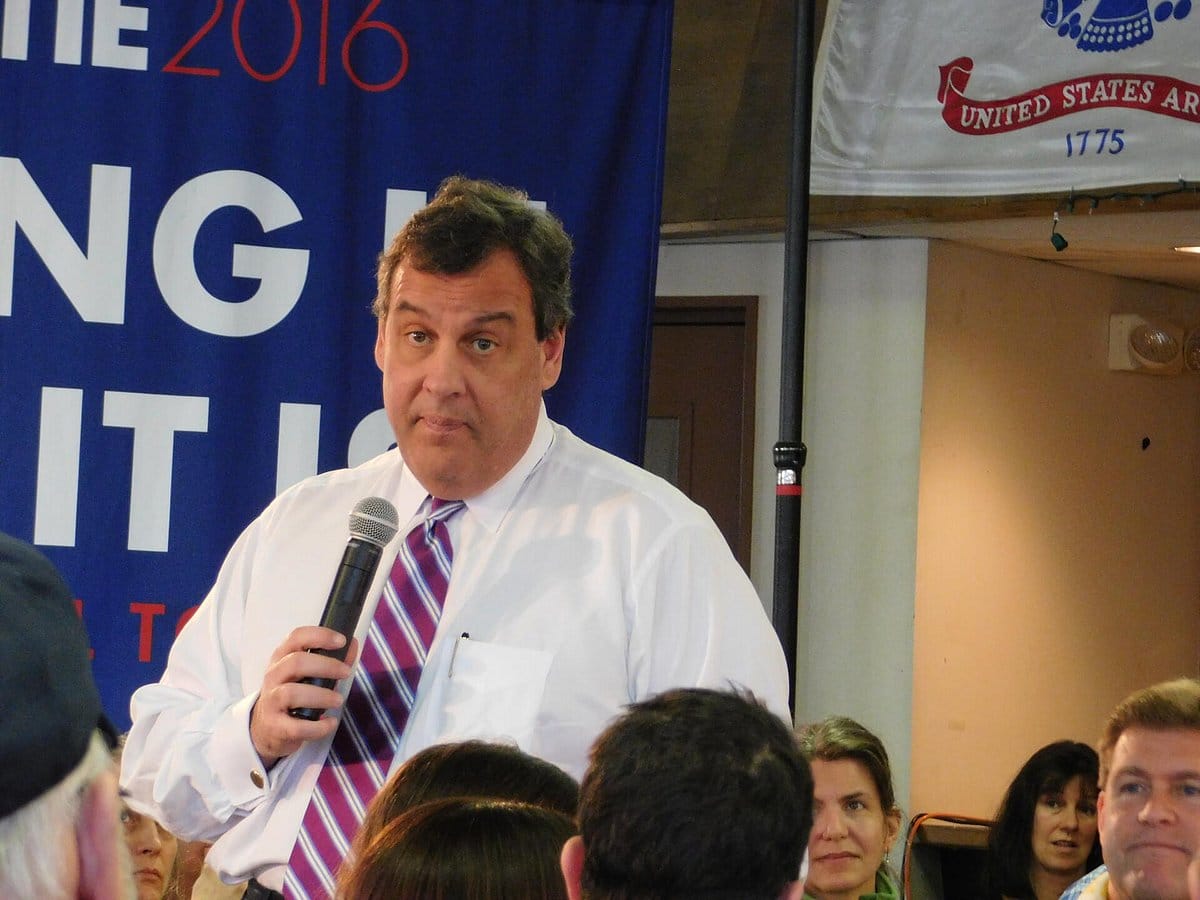Christie zips back to NH campaign after blizzard diversion

PORTSMOUTH, N.H. – After a massive storm slammed the East Coast with snow, ice and battering winds Saturday, New Jersey Gov. Chris Christie returned to his New Hampshire campaign on Sunday, where his wife, Mary Pat Christie had filled in for him since Friday, when Christie left the Granite State for New Jersey after forecasters indicated his state was in line for a direct hit by the blizzard working its way up the East Coast.
"She hung in there for me, doing my events, which means I am confident that my polls numbers have gone up," he joked to the crowd. His wife has had a successful Wall Street career in investment management. She stepped away last year while the governor campaigned for the Republican presidential nomination.

